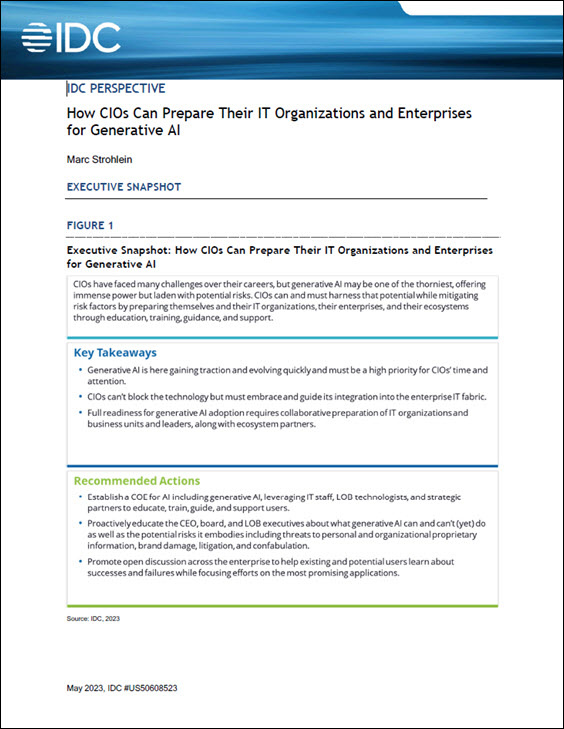![]() GridGain Systems, provider of enterprise-grade in-memory computing solutions based on Apache® Ignite™, announced the availability of GridGain Professional Edition 1.8, a fully supported version of Apache Ignite 1.8. GridGain Professional Edition 1.8 includes an In-Memory SQL Grid, which extends the platform by providing in-memory distributed database capabilities. The In-Memory SQL Grid will help users dramatically speed up and scale out their SQL applications with minimal or no code changes. Users are now able to query data in GridGain using SQL through ODBC/JDBC and also modify the data using DML statements with no custom coding required. Enhanced geospatial functionality is also included. The In-Memory SQL Grid will make the GridGain in-memory computing platform easier to integrate and enable more functionality for a wide variety of use cases including web-scale applications and the Internet of Things (IoT). GridGain Professional Edition 1.8 also includes Redis protocol support and support for .NET Entity Framework 2nd-Level Cache and ASP.NET Session Caching.
GridGain Systems, provider of enterprise-grade in-memory computing solutions based on Apache® Ignite™, announced the availability of GridGain Professional Edition 1.8, a fully supported version of Apache Ignite 1.8. GridGain Professional Edition 1.8 includes an In-Memory SQL Grid, which extends the platform by providing in-memory distributed database capabilities. The In-Memory SQL Grid will help users dramatically speed up and scale out their SQL applications with minimal or no code changes. Users are now able to query data in GridGain using SQL through ODBC/JDBC and also modify the data using DML statements with no custom coding required. Enhanced geospatial functionality is also included. The In-Memory SQL Grid will make the GridGain in-memory computing platform easier to integrate and enable more functionality for a wide variety of use cases including web-scale applications and the Internet of Things (IoT). GridGain Professional Edition 1.8 also includes Redis protocol support and support for .NET Entity Framework 2nd-Level Cache and ASP.NET Session Caching.
The GridGain Professional Edition 1.8 is a major step forward for our in-memory computing platform. It adds key features which makes it easier for users to communicate with the GridGain platform and provides even better functionality for demanding use cases such as web-scale applications and the Internet of Things,” said Abe Kleinfeld, President and CEO of GridGain Systems. “As the world’s most comprehensive in-memory computing platform, GridGain Professional Edition 1.8 makes it easier than ever for more companies to deploy in-memory computing to achieve their speed and scalability goals.”
GridGain In-Memory SQL Grid with DML and Geospatial Functionality
The In-Memory SQL Grid adds in-memory distributed database capabilities to the GridGain platform, which help dramatically speed up and scale out SQL applications with minimal or no code changes. The In-Memory SQL Grid is horizontally scalable, fault tolerant and ANSI SQL-99 compliant. It fully supports SQL and DML commands including SELECT, UPDATE, INSERT, MERGE and DELETE queries.
The In-Memory SQL Grid allows users to interact with the GridGain platform using standard SQL commands through the GridGain JDBC or ODBC APIs without custom coding. In addition to natively supported Java, .NET, and C++, the new JDBC and ODBC driver capabilities allow SQL-based cross-platform connectivity from languages such as Ruby, PHP, Python, and more.
Enhanced geospatial functionality is also supported by the In-Memory SQL Grid, making the GridGain in-memory computing platform well suited for an increasing number of location-based IoT use cases, such as those found in transportation, logistics, mobile, retail and wearables.
Redis Protocol Support
Redis is an open source in-memory data structure store that can be used as a database, cache and message broker. Native support for Redis in GridGain Professional Edition 1.8 enables users to store and retrieve distributed data to and from a GridGain cache using any Redis-compliant client. This allows users to easily migrate from the Redis caching solution to the full-featured GridGain in-memory computing platform with minimal changes to their client communication protocols.
.NET Entity Framework 2nd-Level Cache and ASP.NET Session Caching
Support is now provided for .NET Entity Framework’s 2nd level cache, which can be easily plugged into existing applications. This delivers significant performance improvements because query results are stored in a shared, distributed, fault-tolerant cache.
Further, an enriched ASP.NET session management component provided by the Ignite.NET session state provider allows a session to be distributed across a cluster of machines for fault-tolerant workload balancing.
Sign up for the free insideAI News newsletter.



